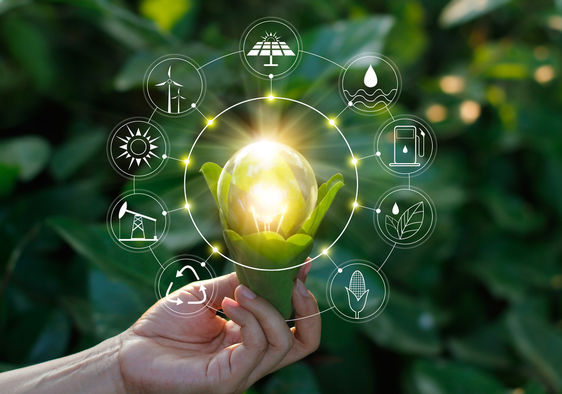In the face of escalating environmental challenges such as climate change, pollution, and resource depletion, innovative technologies are emerging as powerful tools for safeguarding the planet’s health and sustainability. From renewable energy solutions to waste management innovations, environmental technologies are playing a crucial role in mitigating environmental impact and fostering a more sustainable future. In this article, we will explore some of the key environmental technologies and how they are contributing to efforts to save the planet.
1. Renewable Energy Technologies:
At the forefront of the fight against climate change are renewable energy technologies, which harness natural resources such as sunlight, wind, and water to generate clean, sustainable power. Solar photovoltaic (PV) panels, wind turbines, and hydroelectric generators are just a few examples of renewable energy technologies that are rapidly gaining momentum worldwide. By replacing fossil fuel-based power sources with renewable energy, these technologies help reduce greenhouse gas emissions and mitigate the impacts of climate change.
2. Energy Storage Solutions:

One of the main challenges facing renewable energy deployment is intermittency—the variability of energy production from sources such as solar and wind. Energy storage technologies, such as batteries and pumped hydro storage, address this challenge by storing excess energy generated during peak production periods for use during times of low production or high demand. By enabling the integration of renewable energy into the grid and providing grid stability, energy storage solutions play a vital role in accelerating the transition to a renewable energy future.
3. Green Building Technologies:
The construction and operation of buildings account for a significant portion of global energy consumption and carbon emissions. Green building technologies aim to minimize the environmental impact of buildings by incorporating energy-efficient design, materials, and technologies. Features such as high-performance insulation, energy-efficient lighting, and passive solar design reduce energy consumption and greenhouse gas emissions while improving indoor air quality and occupant comfort.
4. Waste Management Innovations:
Effective waste management is essential for protecting the environment and conserving natural resources. Innovations in waste management technologies are helping to reduce waste generation, increase recycling rates, and minimize the environmental impact of waste disposal. Advanced recycling technologies, such as mechanical and chemical recycling, enable the recovery of valuable materials from waste streams, reducing the need for virgin resources and mitigating pollution and habitat destruction associated with resource extraction.
5. Water Treatment and Conservation Technologies:
Access to clean water is fundamental to human health and well-being, yet water scarcity and pollution are significant environmental challenges facing many regions around the world. Water treatment and conservation technologies play a crucial role in ensuring the availability of clean, safe water for drinking, agriculture, and industry. Technologies such as advanced filtration, desalination, and water reuse enable the efficient management and conservation of water resources, helping to alleviate water stress and preserve ecosystems.
6. Sustainable Agriculture Practices:

Agriculture is a major contributor to environmental degradation, accounting for significant greenhouse gas emissions, deforestation, and habitat loss. Sustainable agriculture practices and technologies aim to minimize the environmental impact of farming while promoting food security and resilience to climate change. Techniques such as precision farming, agroforestry, and organic farming reduce chemical inputs, conserve soil and water resources, and promote biodiversity, creating a more sustainable and resilient food system.
In conclusion, environmental technologies are driving innovation and progress in the quest to save the planet from the escalating threats of climate change, pollution, and resource depletion. From renewable energy solutions to waste management innovations, these technologies offer promising pathways to a more sustainable future. By embracing and investing in environmental technologies, governments, businesses, and individuals can play a vital role in safeguarding the planet’s health and ensuring a prosperous future for generations to come.

